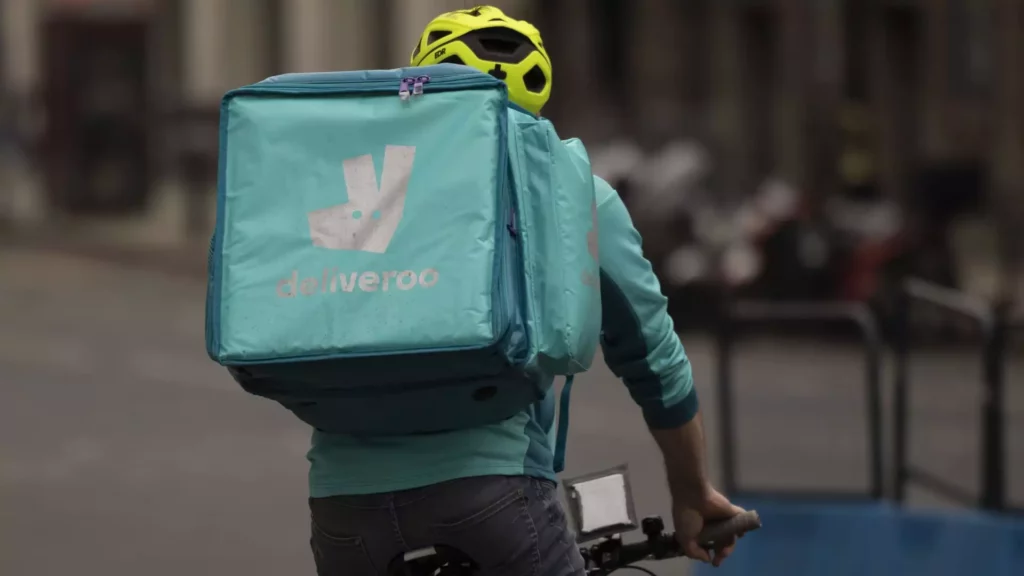The recent revelation that DoorDash, the titan of American food delivery, has set its sights on acquiring its British rival Deliveroo is a significant marker in the timeline of the global food delivery sector. Valued at around £2.9 billion ($3.9 billion), this acquisition not only reflects the expanding ambition of DoorDash but also encapsulates a much larger narrative concerning consolidation and competition in the food delivery industry. By proposing to buy Deliveroo for 180 pence a share—a breathtaking 44% premium over its stock value prior to DoorDash’s interest—the implications of this decision ripple through the market, signaling a strategic leap from a company eager to cement its identity beyond US borders.
This merger represents more than just two companies joining forces; it is a gambit with the potential to reshape consumer experiences tied to food delivery, promising to serve over 1 billion people across more than 40 countries. Such an alliance could radically alter the competitive landscape, particularly in Europe where Deliveroo has been a dominant player. Yet, while these grand visions are enticing, they gloss over the troubling aspects that come with the consolidation—or, quite frankly, the monopolistic tendencies—arising within this sector.
Deliveroo’s Rocky Road
Deliveroo’s path as a publicly traded entity has been markedly tumultuous. Initially heralded as a significant tech start-up, the company faced a disastrous debut on the London Stock Exchange. After a surge in appeal during the pandemic due to heightened demand for food delivery services, reality struck as post-COVID scrutiny intensified. Investors began re-evaluating the sustainability of Deliveroo’s business model, leading to a staggering 30% drop immediately post-IPO in 2021, with cumulative losses exceeding 50% since then. Such a meteoric fall from grace raises fundamental questions about the gig economy that Deliveroo champions—questions regarding worker rights and fair pay—as the scrutiny grows more pronounced.
In this context, DoorDash’s acquisition could serve as a lifeboat for Deliveroo, presenting immediate financial respite alongside newfound opportunities for growth. Investors who once hesitated may well be emboldened under the stewardship of a more established corporate entity such as DoorDash. But herein lies the complexity: does this acquisition signify true innovation, or is it merely a temporary fix in a fundamentally flawed system?
DoorDash’s Expanding Empire
DoorDash, determined to secure its position as an international frontrunner, has previously demonstrated its appetite for acquisition by purchasing the Finnish service Wolt for €7 billion. This latest venture into acquiring Deliveroo underscores an intention to broaden its horizons; however, it also hints at the cutthroat nature of the food delivery market. Operating in an environment rife with fierce competition and dwindling profit margins necessitates strategic moves like these.
Tony Xu, CEO of DoorDash, encapsulates the firm’s ambitions with his enthusiastic assertions about the synergies to be gained from this merger. He insists that not only is DoorDash keen on expanding its footprint, but also on revitalizing local businesses within the communities it serves. However, one has to question whether his rhetoric will translate into meaningful initiatives or simply serve as a veneer for lunar greed—consolidation masked as growth.
Ethical Quandaries and Potential Pitfalls
As we observe this marriage of two giants, we must confront the ethical dilemmas that bubble beneath the surface. An industry already fraught with questions about labor practices and monopolistic trends is now poised to witness further consolidation. Mergers and acquisitions, while potentially beneficial for operational efficiency and market expansion, can lead to a landscape where consumer choice diminishes and ethical concerns are further sidelined.
Recent moves by competitors, including Just Eat’s acquisition by the investment conglomerate Prosus and Deliveroo’s own divestitures in regions like Hong Kong, indicate a recalibration in strategy across the sector. While efficiency may improve and investors might initially cheer, the long-term repercussions on consumer freedom and workforce rights remain to be seen.
A Paradigm Shift on the Horizon
The proposed DoorDash-Deliveroo merger could indeed signify a paradigm shift within the food delivery space. As these two corporate titans prepare to share their resources and innovate, the focus will understandably fall on how such an integration will enhance service delivery amid increasing consumer demand for convenience and speed.
Yet, the real test of this merger will revolve around whether it leads to the nurturing of an ecosystem that thrives on diversity and choice or one that risks locking the market into a narrow lane driven by a few monopolistic powers. The fast-paced evolution of the food delivery industry urges each player to adapt. The survival of any leader in this bustling arena will rest on their ability to adjust and innovate consistently, amid increasing ethical scrutiny and shifting consumer expectations.









Leave a Reply